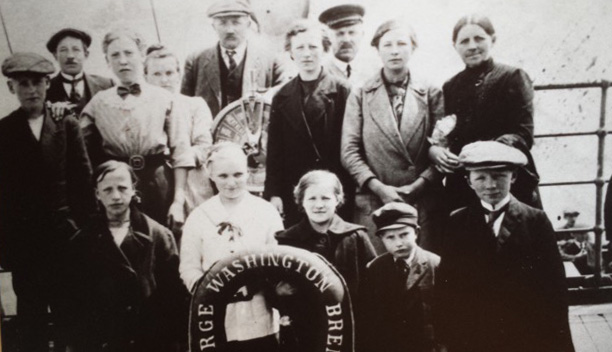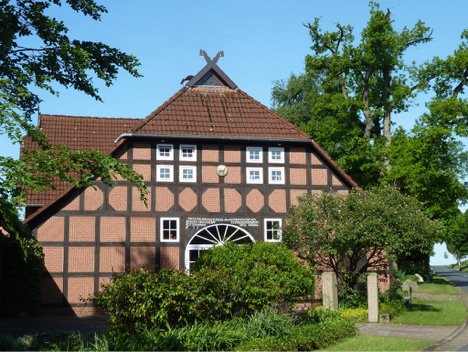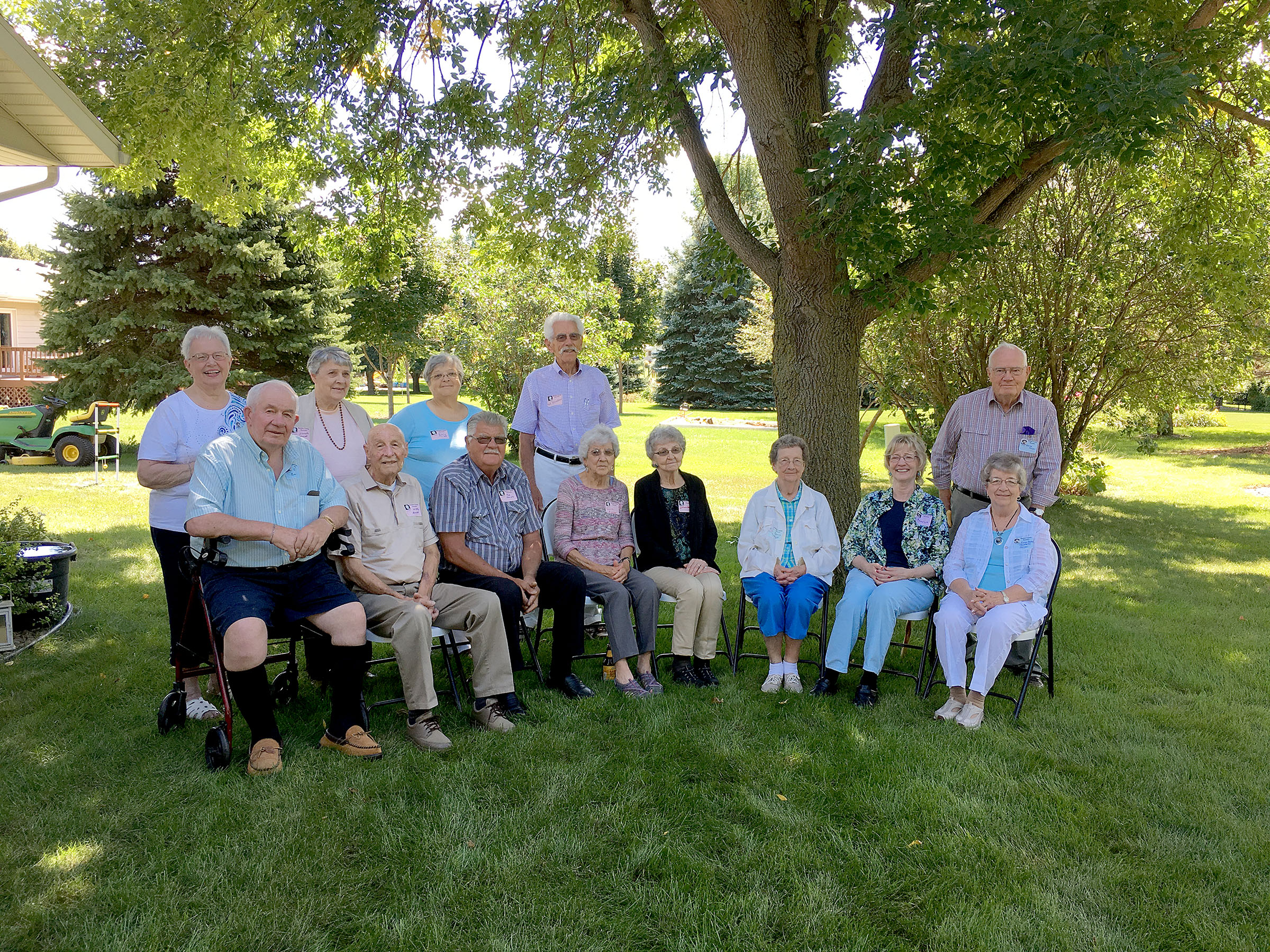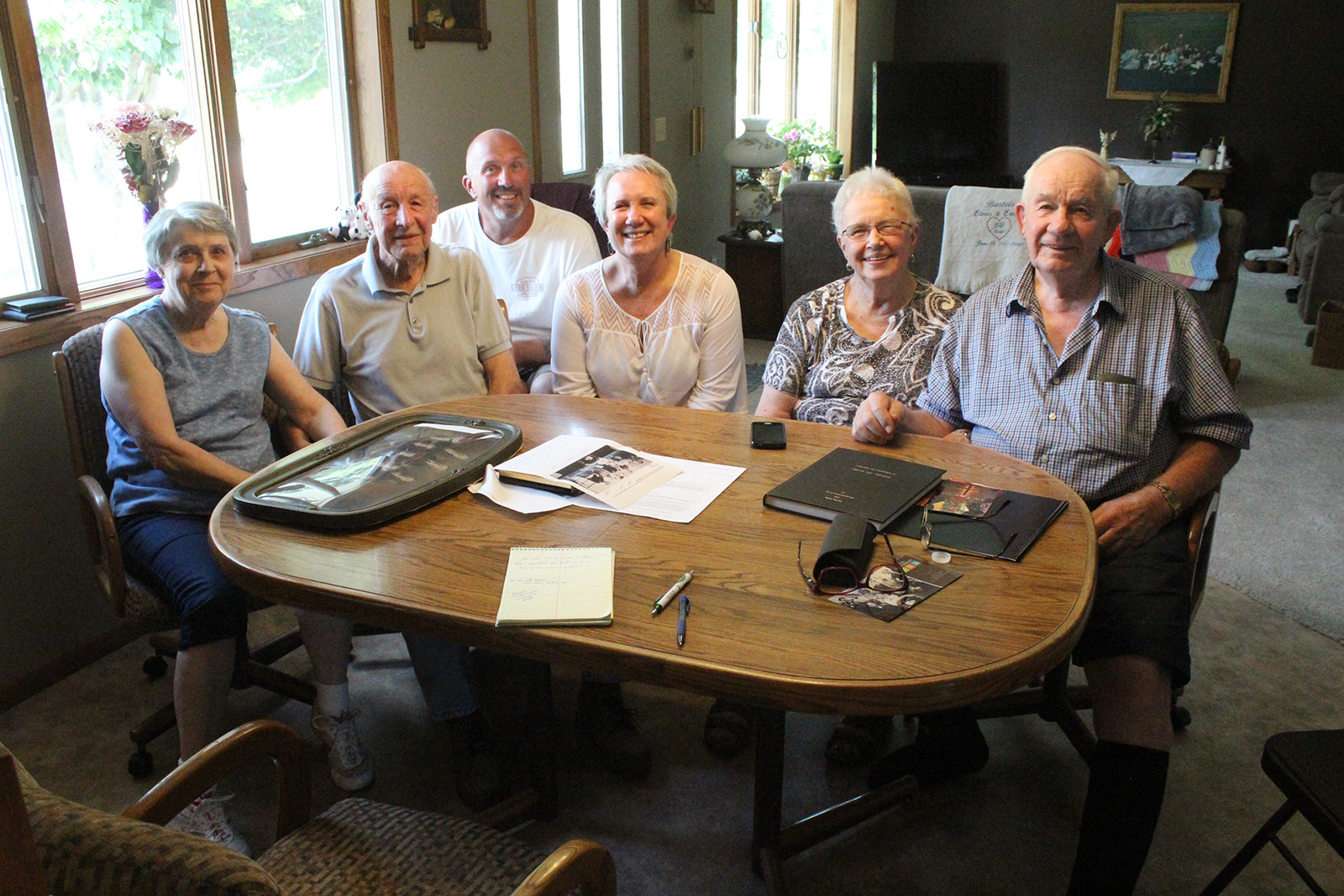 ,
,  ,
,  ,
, 
Family reunions are a universal summer pastime, and for Rock County native Becky Bartels, her Aug. 21 event was similar to many family gatherings.
There were elders, long lost cousins (some from overseas) and children (many who vaguely resembled their grandparents) all gathered at the home of Becky’s parents, Elmer and Eunice Bartels, in Luverne.
And they all trace their roots to a family farm near the tiny town of Neddenaverbergen in Germany.
Becky, who now lives in St. Paul, shared with the Star Herald the story of her grandfather, Otto Bartels, who came to the United States in 1914 with seven of his siblings and their mother.
She admits their story is similar to those of thousands of families who immigrated to America for a better life, but she said that’s what makes the information compelling.
“This is the story of a family of immigrants,” Becky shared in an email with a black and white image of her ancestors aboard a ship that brought them to the states.
“Like all families, our stories include both routine and marked occurrences set on the backdrop of tragedy and progress, joy and sorrow, strength and resolve, hard work and singing, struggle and faith.”
It’s with this perspective that she compiled her family history in a document, “Setting Down Roots in Rock and Pipestone Counties, Minnesota, USA,” completed Nov. 5, 2015.
“What makes this story interesting is the place, the long lives of the elders and the dawning appreciation among a large group of relatives of how we are bound together,” Becky said.
Documenting history
She shared her document at the Aug. 21 reunion, which follows a long history of Bartels reunions started by the first American-born generation of cousins who now are in their 80s and 90s.
“Over the years, my first cousins have established our own tradition of coming together in the summer,” Becky said.
“We have always appreciated the value of celebrating our roots and perpetuating the stories that could so easily become lost as the next generation passes.”
She said what’s not lost on them, though, is the role that several of the small towns in southwestern Minnesota have played in their lives.”
“As an amateur genealogist, I am struck by how much I have learned about my grandparents by reaching back into the decades and piecing together the context of their lives,” Becky said.
In the prologue to her book, she writes that the Bartels family and its descendants have been in the United States for over 100 years, and almost 700 offspring have been produced from the eight people who emigrated from northern Germany.
“As time marched on, the Bartels family story became entwined with the history and stories of the places where they lived,” Becky writes in the prologue.
“By knowing where they came from, we know a bit more about ourselves. By imagining what it must have been like for them to live here, we tie up some of the loose ends in our memories of them, and we figure out what may have driven them to embark on their unimaginable journey.”
Putting down roots
That journey started in 1914 when Becky’s great-grandmother, Metta Bartels, by this time a widow, boarded the George Washington with seven of her eight children – between the ages of 12 and 25.
Including Becky’s grandpa Otto, there were Ernest, Meta, Helena, Willie, Greta and Bertha. John remained in Germany on the family farm.
Those Bartels children grew up and started families of their own on the land surrounding the communities of Luverne, Edgerton, Hardwick, Trosky, Pipestone, and Jasper.
Many of them farmed, and Becky’s research turned up stories of hardship and loss, and starting over and persevering.
“I came away with a real appreciation for the fact that these immigrants created a large footprint; they had an impact while they were here if only in the fact that they drew economy from the land,” Becky writes.
“But that wasn’t all; they were faithful people who contributed in their churches and communities. They were also humble people who didn’t try to be known or remembered.
“That’s our glorious chore — to remember them. And to be thankful for what they have done. We’re the ones that still benefit from their journeys.”
Learning from our past
In her book, Becky shares what that means to her and the younger generation of Bartels family members.
“This group of eight members of a tight-knit family got their start in a mostly rugged part of the northern Prairie,” she writes.
“Yet, they did as so many immigrant families do; they made way for the next generations to move far and wide, presumably following their own American dream, but certainly making the most of the experience and gifts they inherited.”
She said four of these great-grandchildren are still farmers today; a handful of others have chosen related professions.
“Despite that, the roots go down deep,” Becky writes.
“It only takes a drive to the very southwestern corner of Minnesota to be reminded that for as long as the prairie grows, this place will share a piece of our idea of home.”


